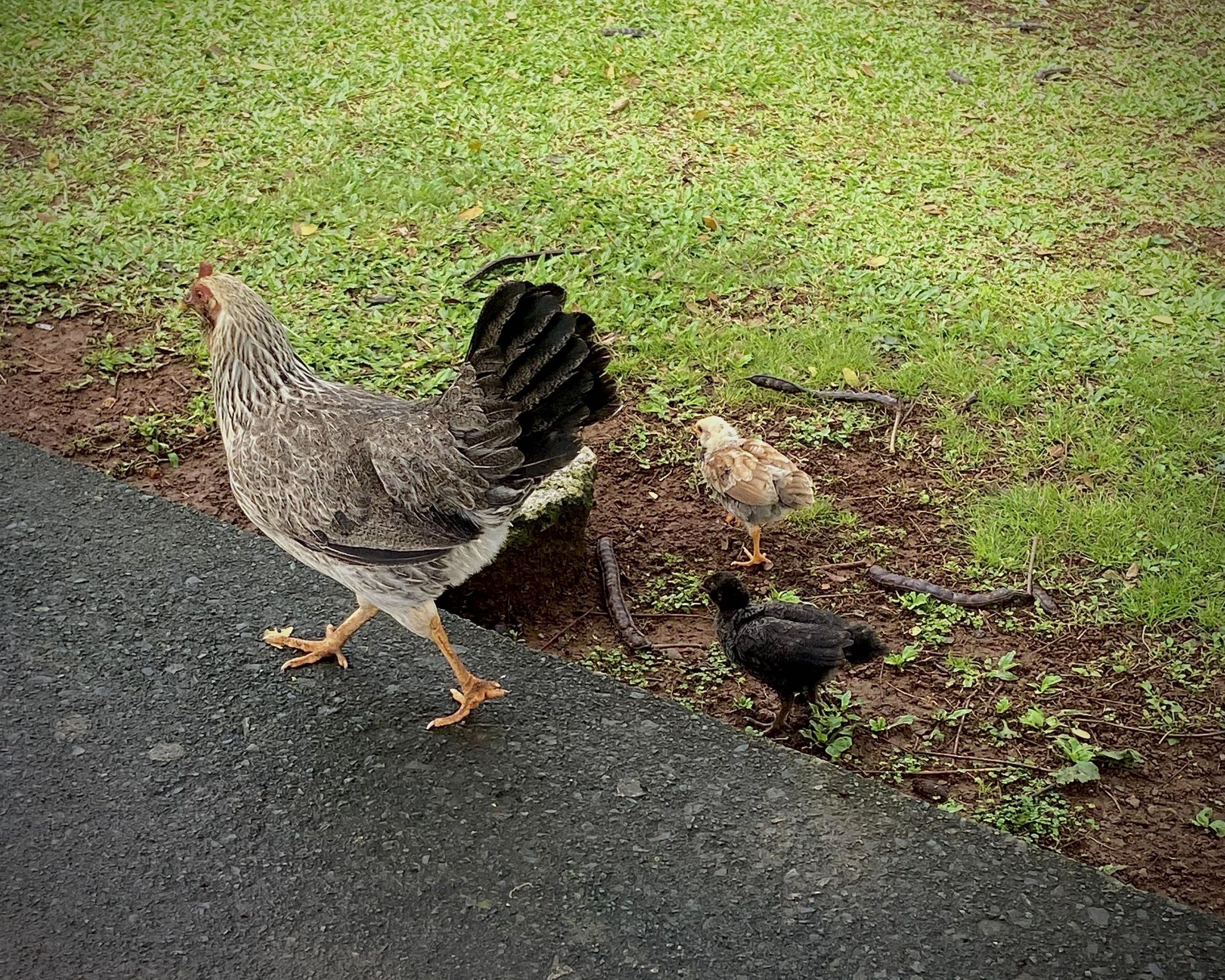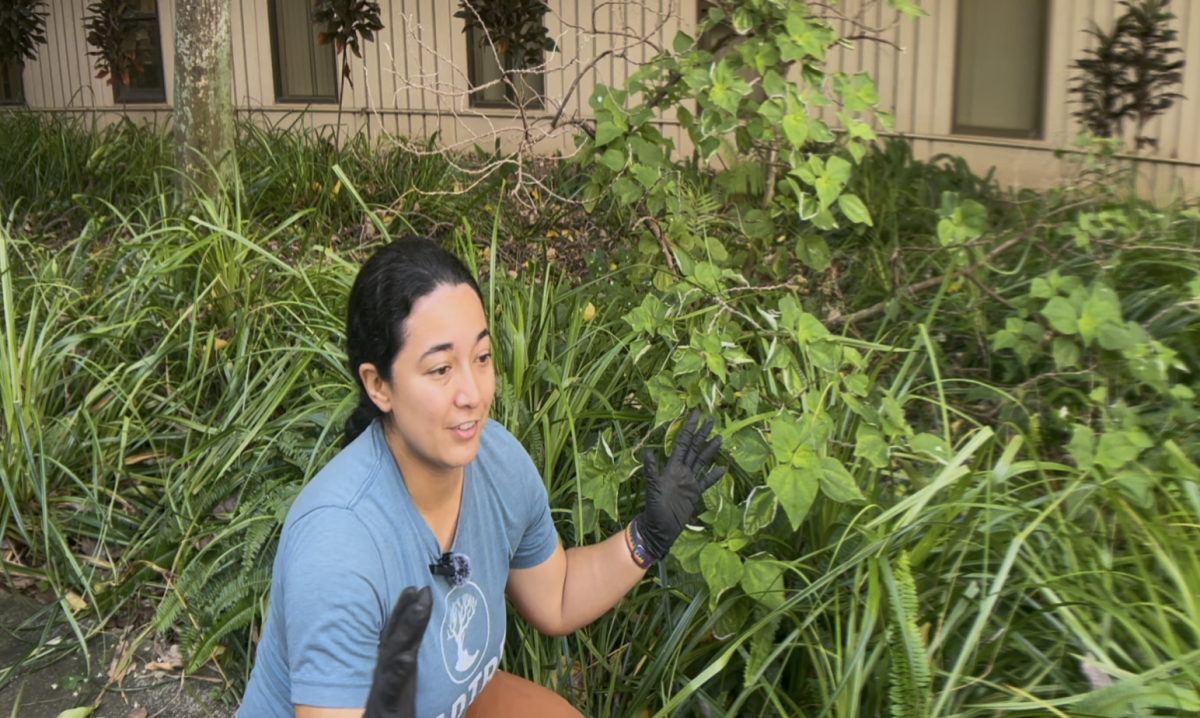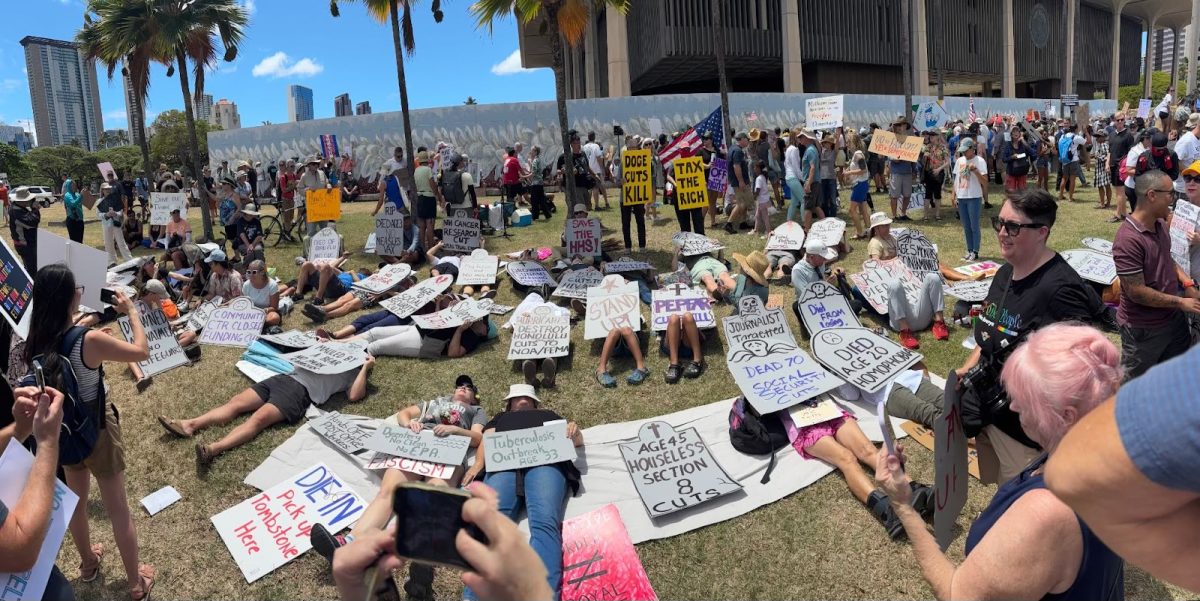Chicken traps are being placed on public properties. The City and County of Honolulu is providing resources for people to catch and humanely dispose of chickens. Sandwich Isle Pest Solutions has been contracted by the local government to provide a cage and disposal service to help get rid of them. In other words, O’ahu has a feral chicken crisis, and few agree on precisely what should be done about it.
“I think the community is divided in terms of this issue. Some people were very happy when the city began this program,” said Kimberly Hashiro, Director of Honolulu’s Department of Customer Services. “Others feel that the chickens should be left alone. There are strong animal(-rights) advocates, and so we think that they may be the ones that are releasing chickens or damaging the cages or stealing the cages and it might just be vandalism.”
Lawmakers have come to recognize that feral chickens and roosters are causing ongoing problems, especially in suburban and urban neighborhoods. These birds roam into yards and gardens, causing damage to plants and crops as well as pose a threat to native resources. They are road hazards. The constant crowing of feral roosters has resulted in numerous noise complaints from residents across the state. The droppings from feral chickens are unhygienic and raise health concerns. Moreover, feral chickens are notorious for spreading weeds. Their movements across farmlands and gardens facilitate the dispersal of weed seeds, further exacerbating weed infestations. This not only harms agricultural productivity but also increases the effort and resources needed for weed control.
“I personally find very bothering the crowing at the early hours of the morning,” said Alejandra Martin, a Kina’u neighborhood resident. “So if this program solves that issue, I am glad.”
Honolulu has tried to address the issue, spending $7,000 to catch 67 feral chickens in the year 2022. A cluster of statewide legislation about this topic was raised this session, including House Bill 2619, to get the Department of Agriculture involved, and House Bill 2046, which required the Department of Land and Natural Resources, Department of Agriculture, and all of the counties to collaborate on feral chicken-management projects. Those didn’t pass. But Senate Bill 2401, designed to prompt and to implement a feral chicken control program and a feeding feral animals education campaign, did pass both chambers and has been sent to the governor, who has until July 10 to sign the bill into law.
“We tried to pass a bill this session that would give law enforcement better tools to do that (chicken management), and unfortunately that failed,” said Stephanie Kendrick, director of community engagement at the Hawaiian Humane Society. “But the law enforcement still does have to address cockfighting, and we hope that they will pursue those (avenues), because that is a large contributor to the feral chicken population.”
The cacophony of crowing at dawn, the territorial disputes echoing through neighborhoods, and the fecal mess left in their wake have become typical grievances aired by residents. Some of the hot spots for complaints have been the Waikīkī area, Ala Wai Park area, Kina’u area, the zoo area, St. Louis Heights, Kaimukī, and Kahala.
Leading the counter-offensive in this avian debate is Animal Rights Hawai’i, an organization founded in 1975, predating PETA. For the ARA, the feral chickens are not pests but sentient beings worthy of empathy and consideration. Staff members argue that the chickens should be treated with compassion rather than hostility.
One of the key initiatives supported by Animal Rights Hawai’i is the implementation of birth control measures for the feral chicken population.
“There are several bills about controlling feral chickens, but none of them include the possible use of OvoControl,” said Catherine Goeggel, president of Animal Rights Hawai’i. OvoControl is a specially formulated bait that interferes with egg fertilization.
Instead of resorting to culls or other drastic measures, Goeggel said, her group advocates for humane methods to manage the population.
“Hawaii Humane Society isn’t bothered by the feral chicken population. We would prefer to just have them be let be,” Kendrick said. “This is a problem that human beings created, and we don’t think animals should be punished for problems that human beings created. But we understand that feral chickens do present a nuisance issue to some people, and so if they are interested in reducing the population we just think it should be done humanely.”







Bill Powers • May 10, 2024 at 8:14 am
Just letting you know, Senate Bill 2401 did pass the legislature and has been sent to the Governor.